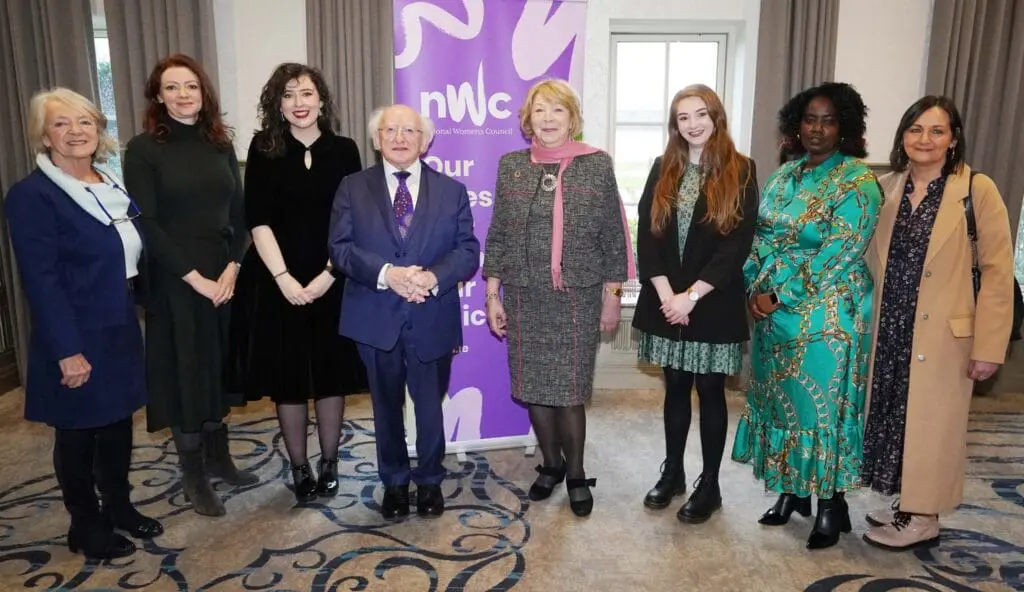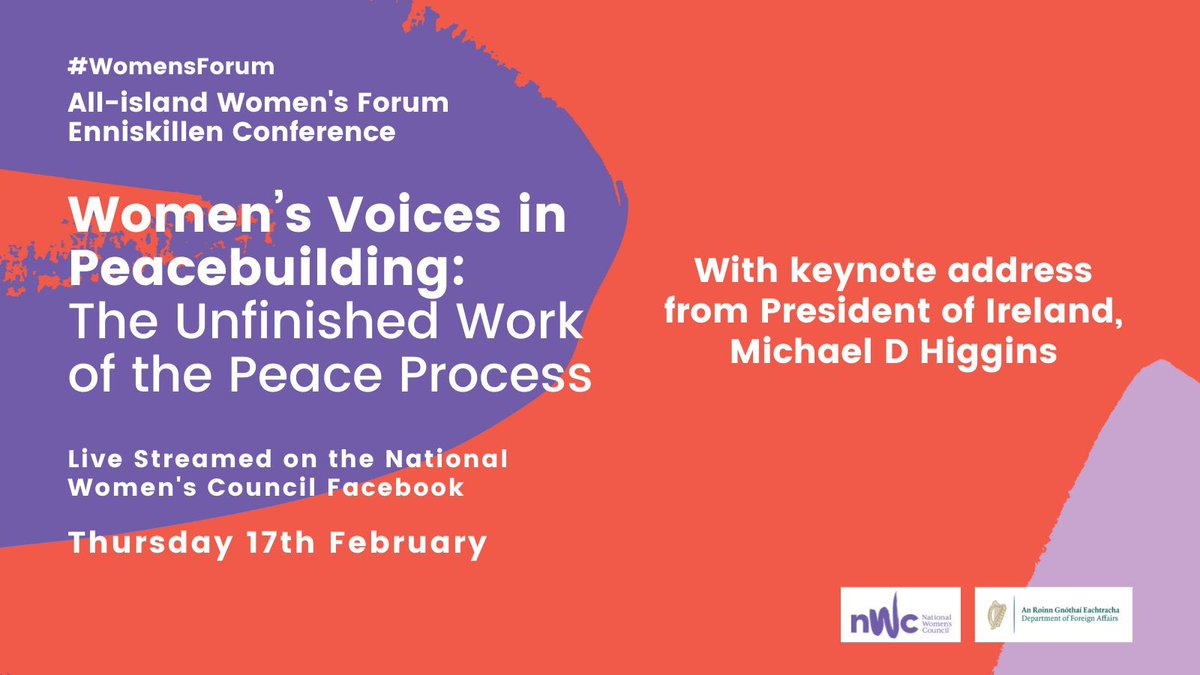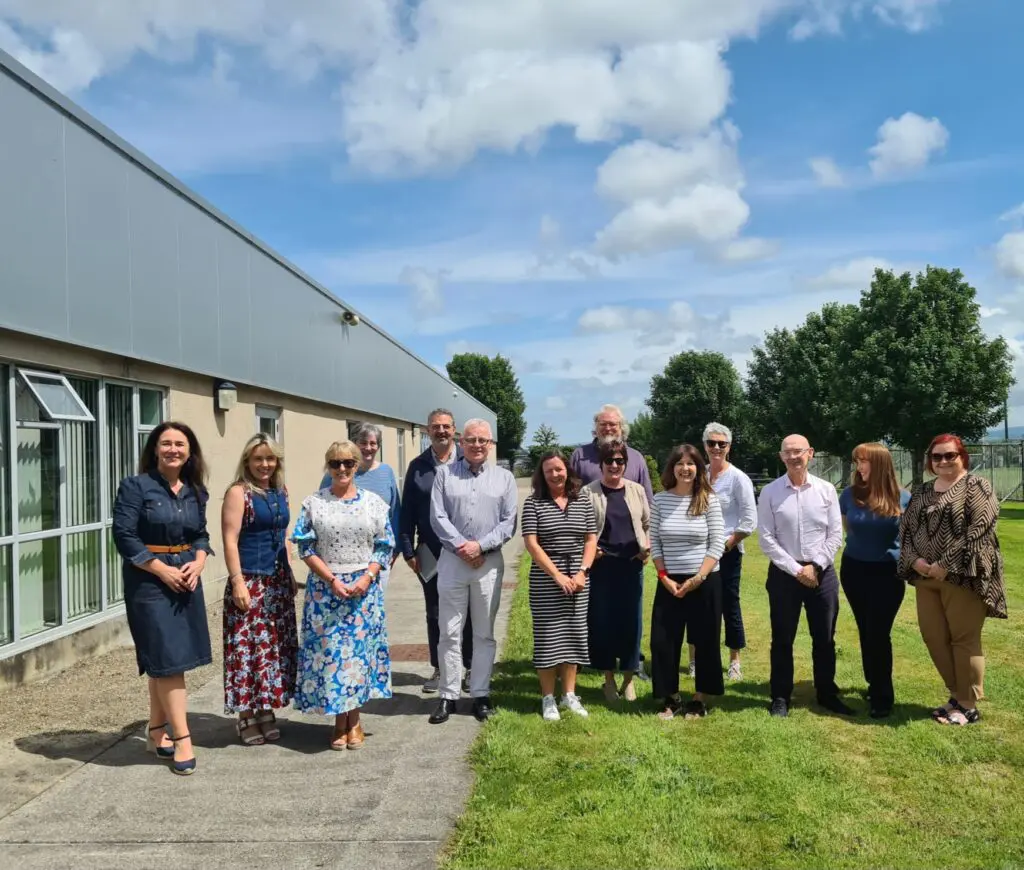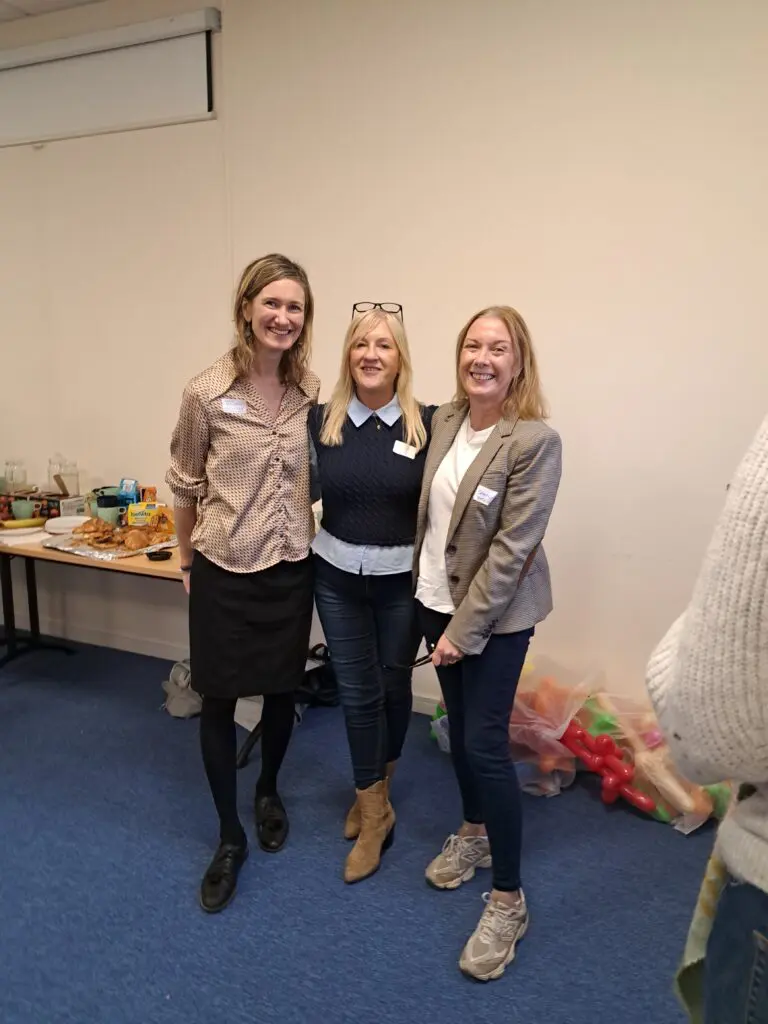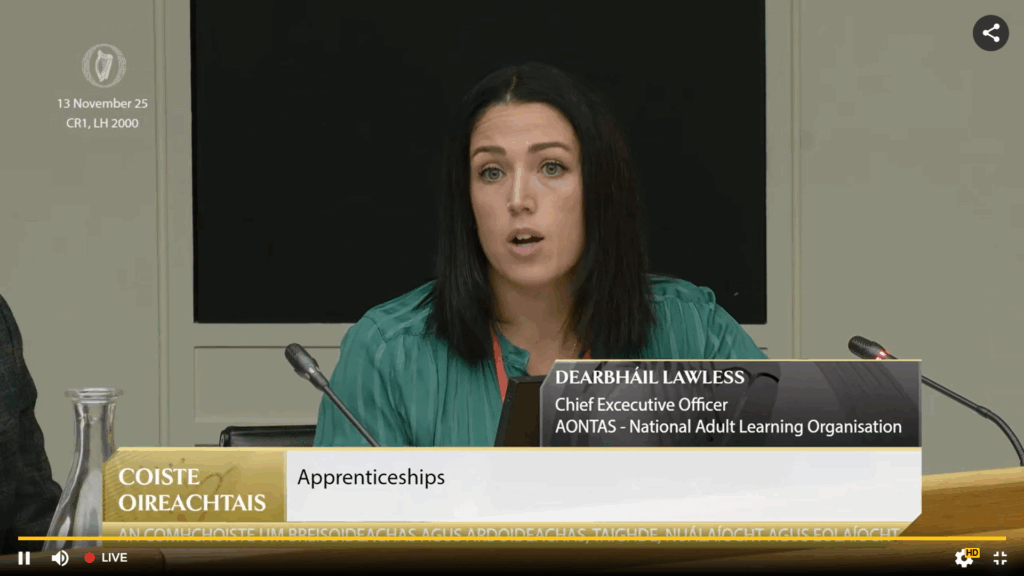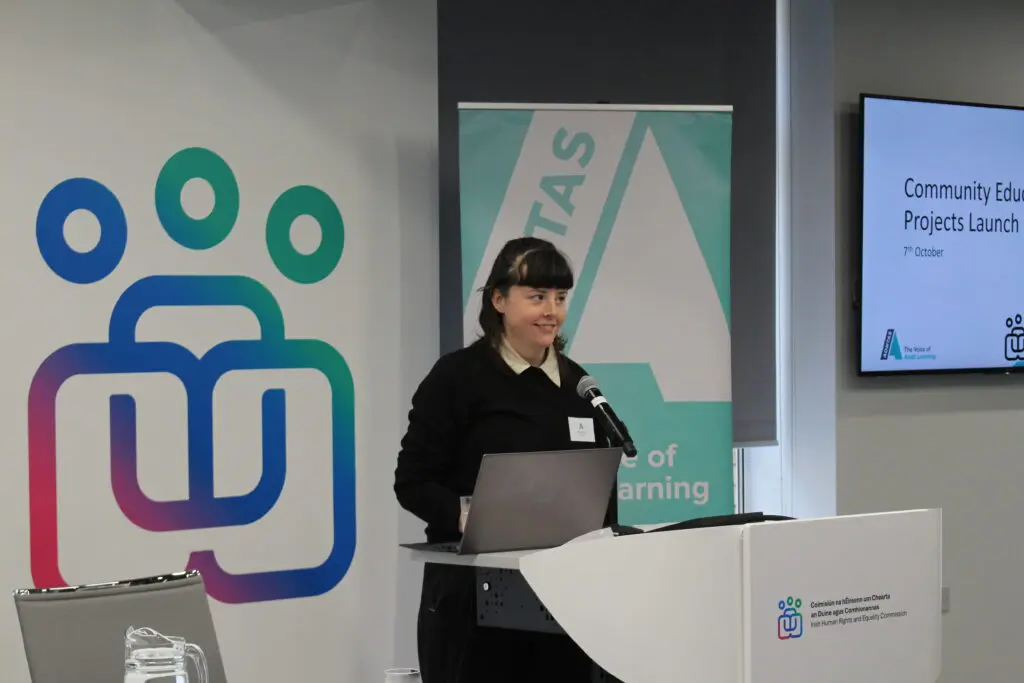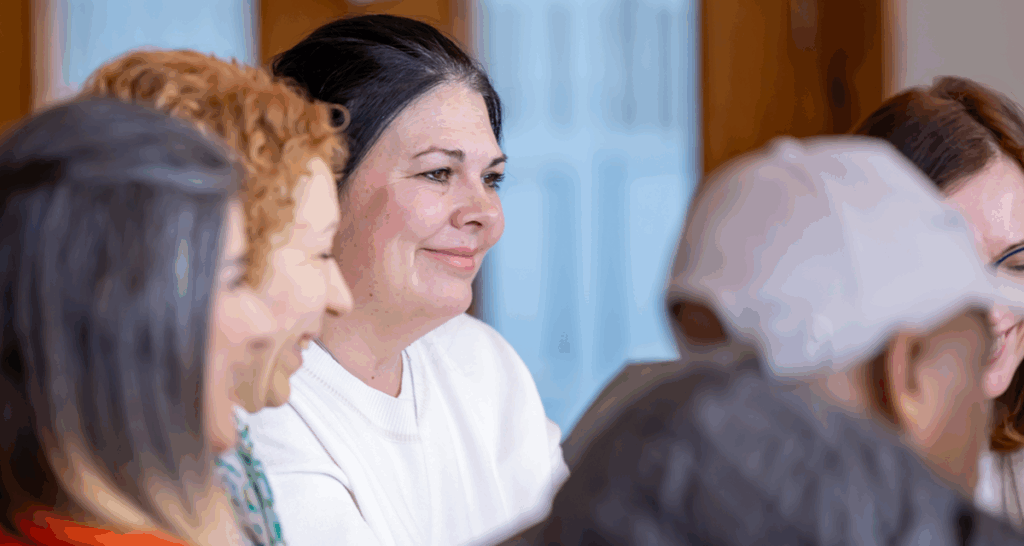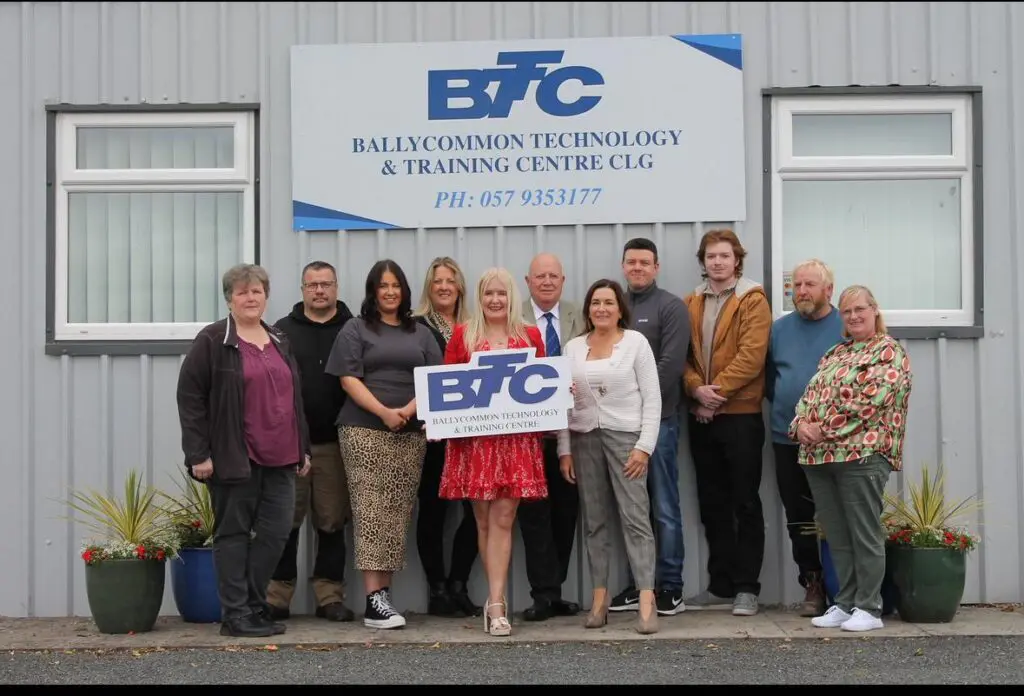“How can there be peace without equality? How can there be peace without educational equality?” – Dr Niamh O’Reilly, AONTAS CEO.
Education empowers people. It increases a person’s sense of agency, capacity, and self-confidence. These are the foundations for enabling positive engagements, behaviours, attitudes among and between members of a community and society.
At the recent National Women’s Council All-Island Women’s Forum event, “Women’s Voices in Peacebuilding: The Unfinished Work of the Peace Process”, Dr Niamh O’Reilly, CEO of AONTAS, took part in a panel discussion on the role of education in peacebuilding and reconciliation. Speaking at the event in Enniskillen, Dr O’Reilly discussed research conducted by AONTAS in 2021, which draws on research by the Learning at Work Institute, commissioned by the Open College Network, Northern Ireland (OCN-NI). Dr O’Reilly stated that equal access to education and educational opportunities in Northern Ireland is not where it could be, and improvements in this could be beneficial for peacebuilding and reconciliation.
Latest Research
According to this research, in Northern Ireland during the COVID-19 pandemic, only 27% of adults engaged in some form of learning. A report published by AONTAS in 2021 found that in the Republic of Ireland, there was an increase in educational inequality during COVID-19: “The pandemic had an overwhelming impact on disadvantaged and vulnerable groups, manifesting in digital poverty and aggravating other persistent issues such mental health and domestic violence. This has further clarified the significance of community education and the attendant support structures already highlighted, demand for which increased substantially during the pandemic.”
Currently, just 21% of people in Northern Ireland have less than lower secondary education (Junior Certificate or GCSE). By 2030, this is predicted to be 17%, while in the Republic of Ireland the prediction stands at 5%. There are many reasons for this difference, including the impact of Brexit and the loss of European Social Fund (ESF) funding. Adult learning providers in Northern Ireland have articulated the need for improved relationships with other providers, and increased clarity on community education supports and structures.
Community Education
AONTAS understands community education as adult learning which takes place in local, self-managed, independent community education organisations across the island of Ireland. It is learner-centred and responds to the needs of the local community. The supportive environment of community education works to increase the engagement of adult learners and those who have had negative experiences of education. Examples of such organisations involved in the Women’s Forum include the National Collective for Community Based Women’s Networks (NCCWN), Longford Women’s Link, and the Women’s Resource and Development Agency (WRDA).
Our members in Northern Ireland state that community education is a pathway out of poverty and can enable people to gain sustainable employment, offering real options so people do not resort to criminality. However, and critically, it is a vital means to debate differences and challenge inequalities, which is a key aspect of a healthy, peaceful democracy. People need to be supported to engage in learning that is local and that is responsive to their needs. If adults are supported to make informed choices about how, where, when, what, and – perhaps mostly importantly – why they learn, this can work towards helping them feel they have a stake in their society and community. It can cultivate a sense of belonging and community values, and can help people to work towards sustainable employment and economic stability. Specifically in relation to gender equality, community education can build women’s capacity in local leadership, and enable women to make their voices heard.
Currently, there is no constituted, region-wide organisation focused on adult learning advocacy and promotion in Northern Ireland. The Forum for Adult Learning in Northern Ireland (FALNI) has supported research, advocacy through EU funding from the Learning and Work Institute UK under the European Agenda for Adult Learning (EAAL), enabling engagement between England, Scotland, Wales, Northern Ireland, and the Republic of Ireland.
Collaboration and Funding
Access to this funding has now ended. However, AONTAS continues to support advocacy for adult learning in Northern Ireland through FALNI and other AONTAS members. There are many possibilities for collaboration in the adult learning sector, which can help in the process of peacebuilding and reconciliation. In order to support community education across the island of Ireland, there are opportunities for shared learning and dialogue, research, promotion, access to funding, and a stronger structure for advocacy for lifelong learning. One example is the Network for Adult Learning Across Borders (NALAB), co-founded by AONTAS, which brings together adult learning organisations from the Republic of Ireland, Northern Ireland, England, Scotland, and Wales. NALAB creates a regional network, which advocates for educational equality for adults across these five jurisdictions, building expertise, sharing best practice and addressing challenges in both policy and practice.
In her contribution to the panel on education and peacebuilding, particularly for women, Dr O’Reilly called for funding for autonomous community education provision in Northern Ireland that responds to local needs in adult learning, and addresses real challenges in access to education such as childcare and transport. She highlighted the need for greater awareness of the value of alternate or non-formal education, forms of learning that are not provided by the State. She pointed out the value of feminist methods of teaching, and of learning that builds collective and individual agency for women.
Funding for community education is essential to these structures and supports. In the Republic of Ireland, this was reflected in the Shared Island Report and Dialogues (2020-2021) and the National Economic and Social Council report (2021). AONTAS is currently carrying out research on community education with members in Northern Ireland. It is looking at the impact of community education and supports that can be provided to meet the needs of learners.
“Ultimately,” Dr O’Reilly noted, “it is about adult learning options that support people to feel valued, respected and empowered in their lives.”
For more information on the ongoing AONTAS community education research in Northern Ireland, get in touch.
